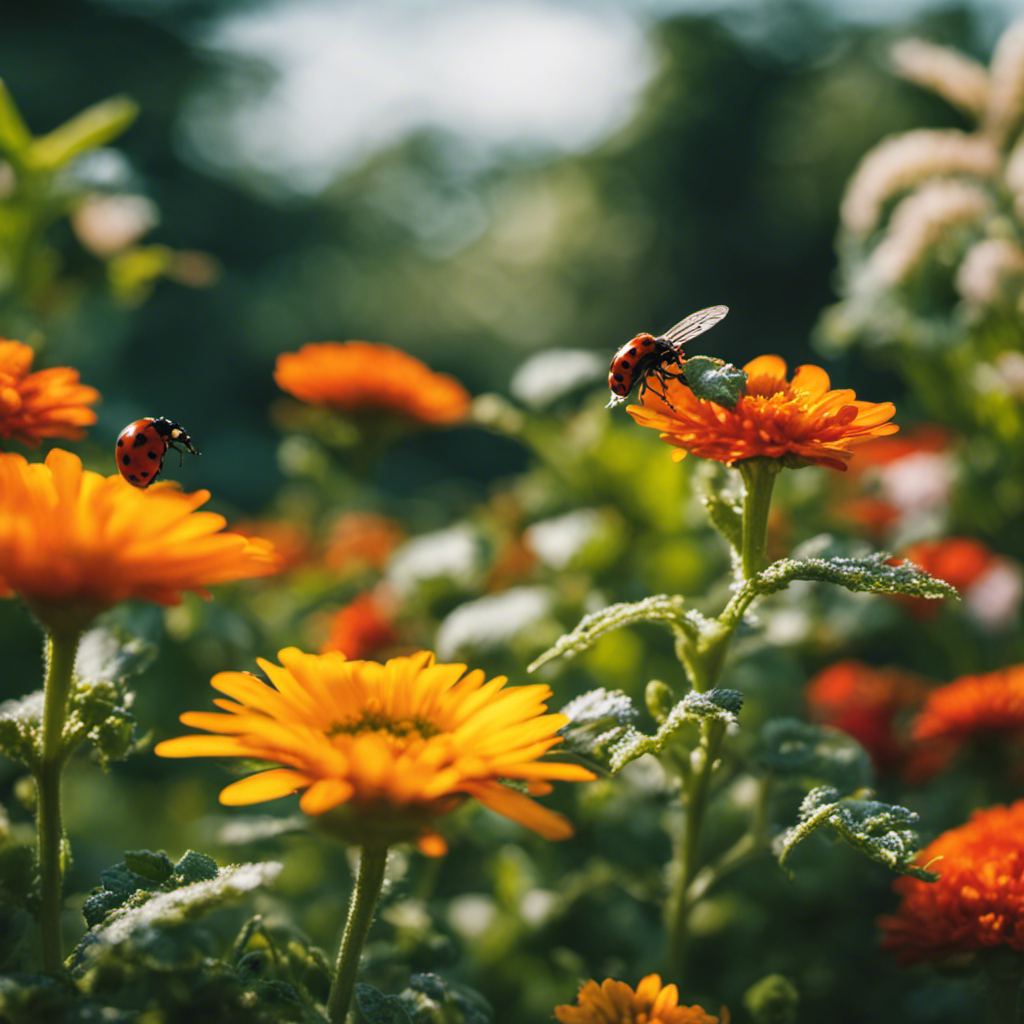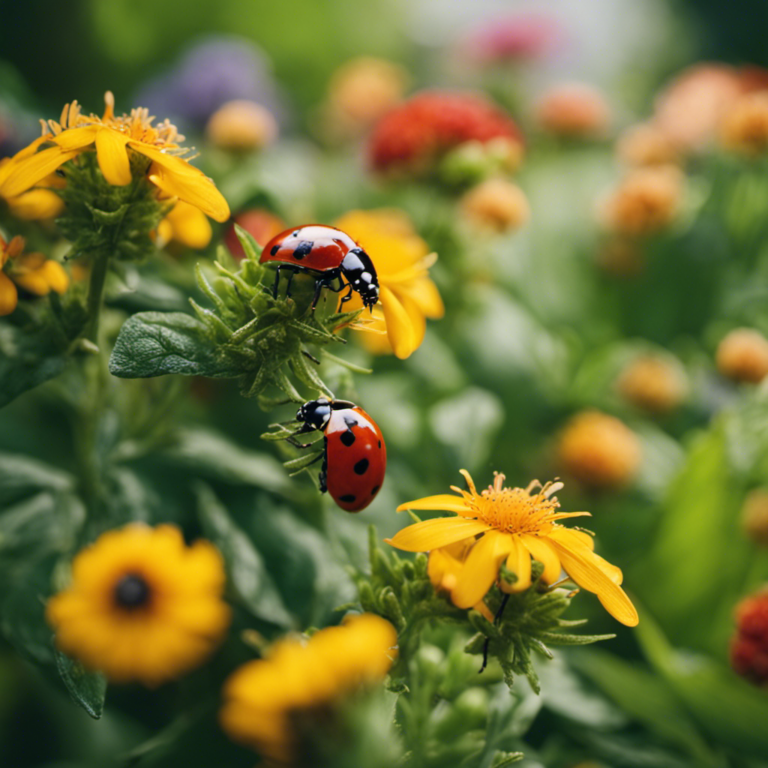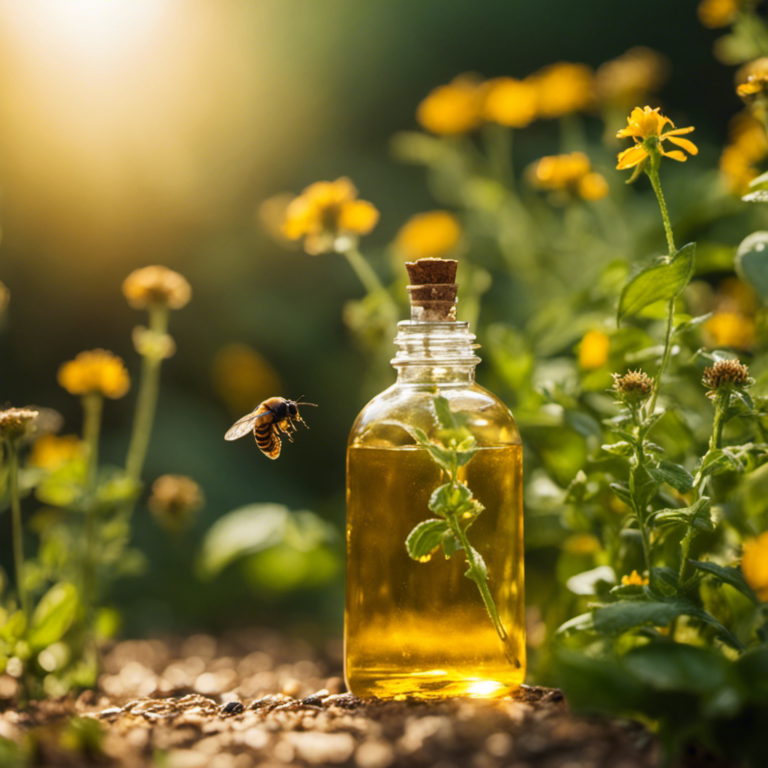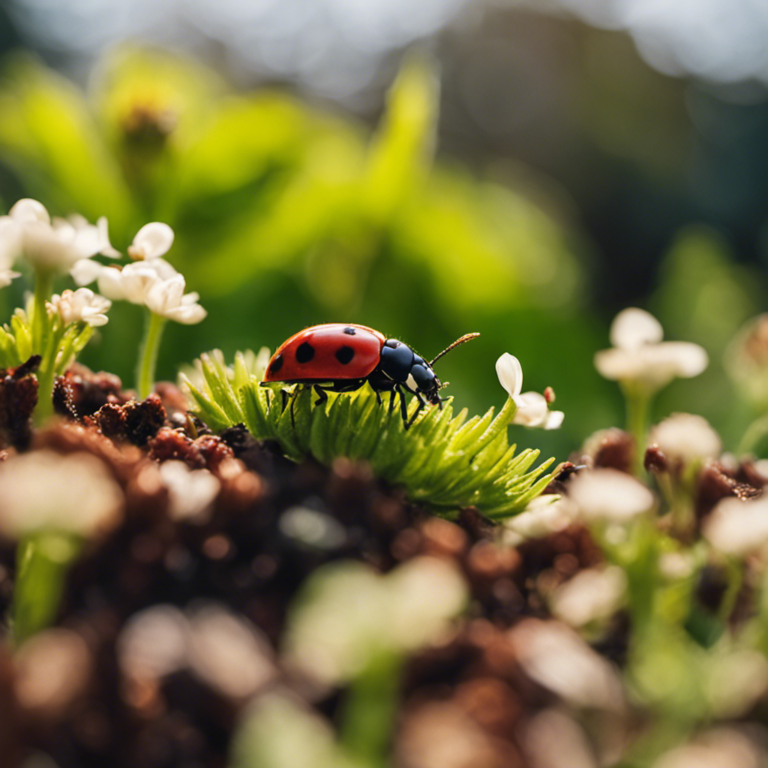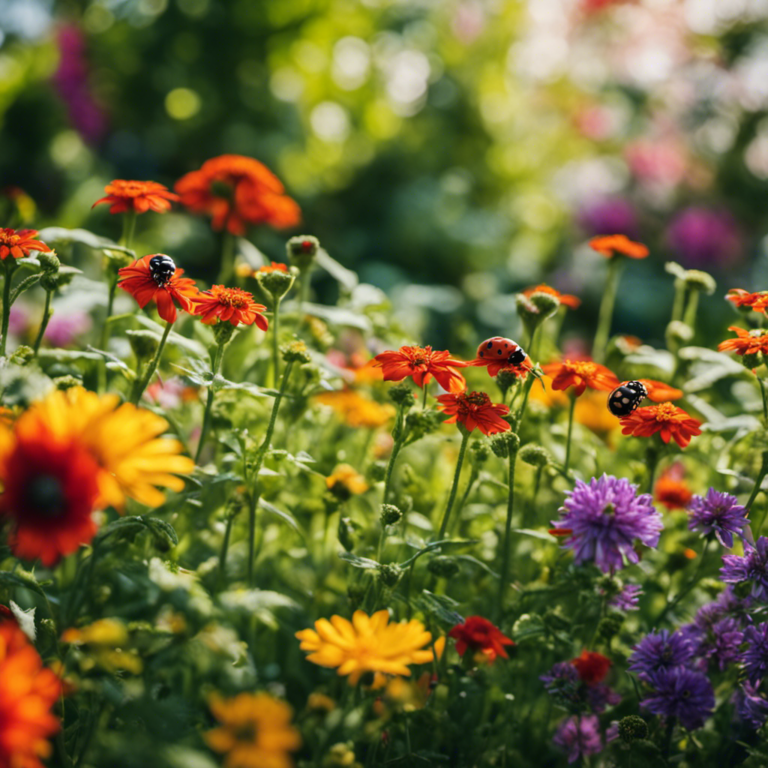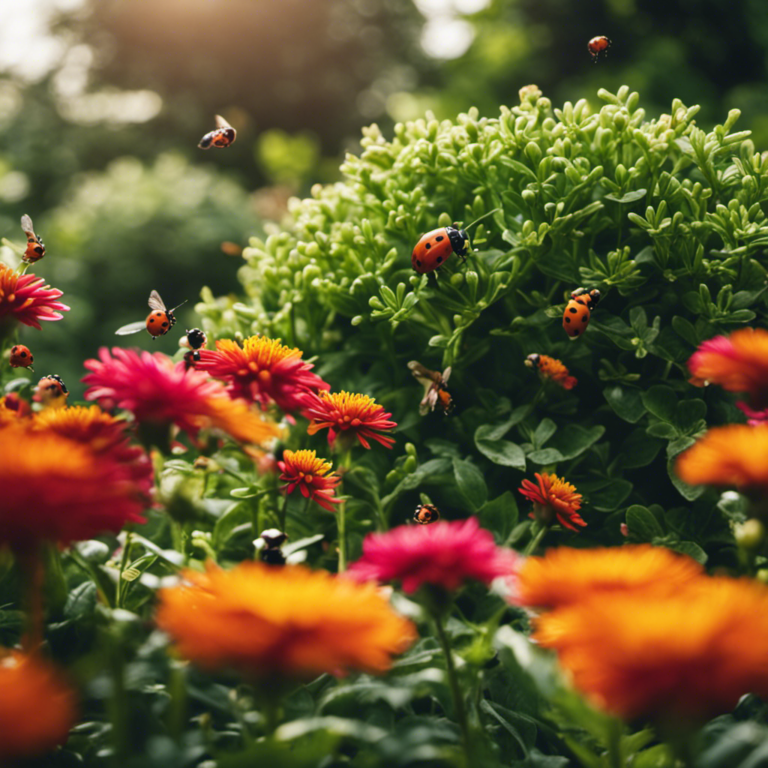Keep your garden free from pests using natural methods and enjoy a lush oasis all season long. No need for harsh chemicals – we’ve got some simple tricks and know-how to help you create a thriving and pest-resistant garden.
In this guide, we’ll cover everything from identifying common garden pests to attracting natural predators and making homemade organic sprays. Say goodbye to pesky pests and hello to a bountiful and beautiful garden.
Key Takeaways
Creating a pest-free garden is a journey that relies on natural methods. Nature itself offers numerous solutions for controlling pests. One effective approach is to attract natural predators like ladybugs and birds, which can help keep unwanted visitors at bay. Another method involves planting companion crops such as marigolds and basil, which naturally repel pests. Additionally, you can make your own organic sprays using ingredients like garlic or neem oil to deter critters. By embracing these organic techniques, you can establish a flourishing garden that remains pest-free, allowing you to fully enjoy the beauty of nature’s harmonious balance.
Identification of Garden Pests
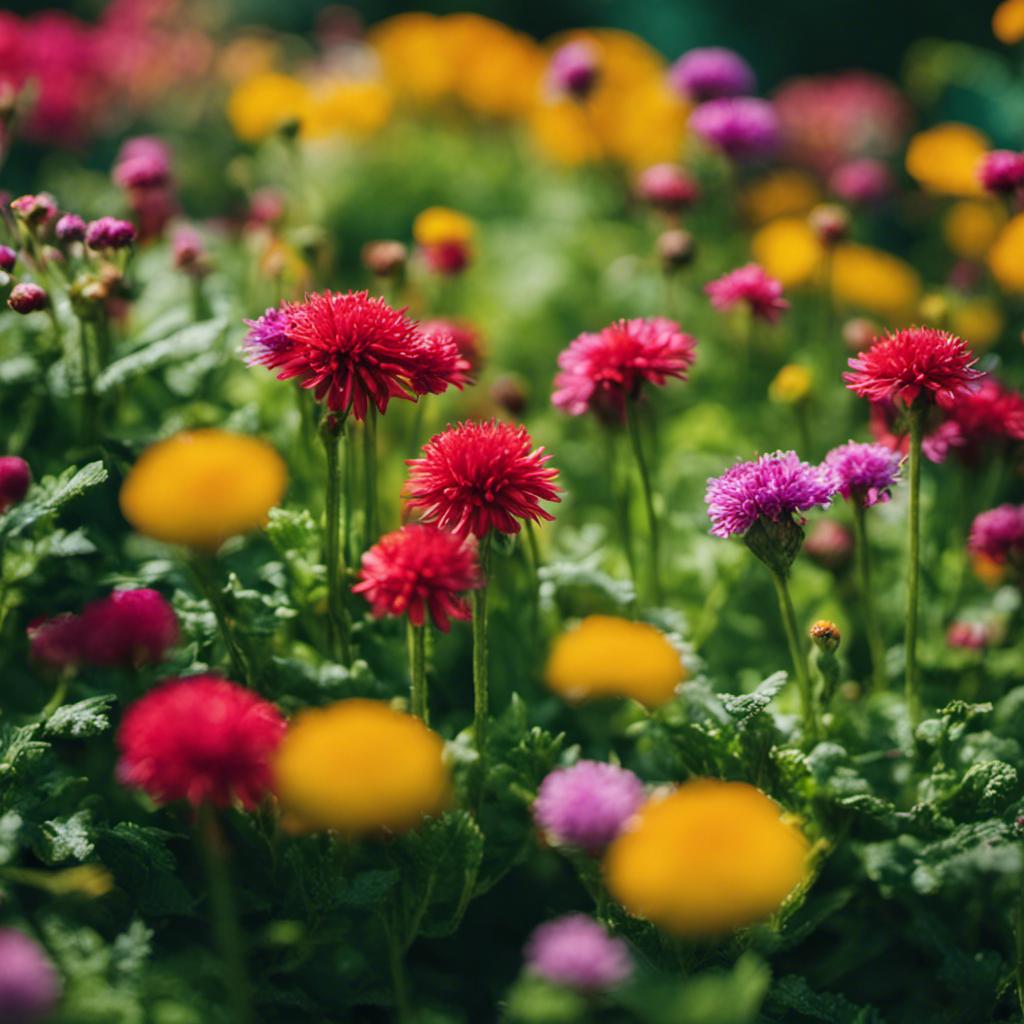
Identifying Garden Pests
To identify garden pests, you should observe their feeding habits and the damage they cause to your plants. By understanding the signs of pest damage, you can take prompt action to protect your garden.
Some common garden pests include aphids, slugs, snails, caterpillars, and beetles. Aphids are small insects that suck the sap out of plant leaves, causing them to curl and turn yellow. Slugs and snails leave trails of slime and eat holes in leaves and stems. Caterpillars chew on leaves and can quickly defoliate plants. Beetles, such as Japanese beetles, chew on leaves, flowers, and fruit.
Identifying these pests and their damage is crucial in implementing effective pest control strategies. It’s important to stay vigilant and take action as soon as you notice any signs of pest damage in your garden.
Natural Predators for Pest Control
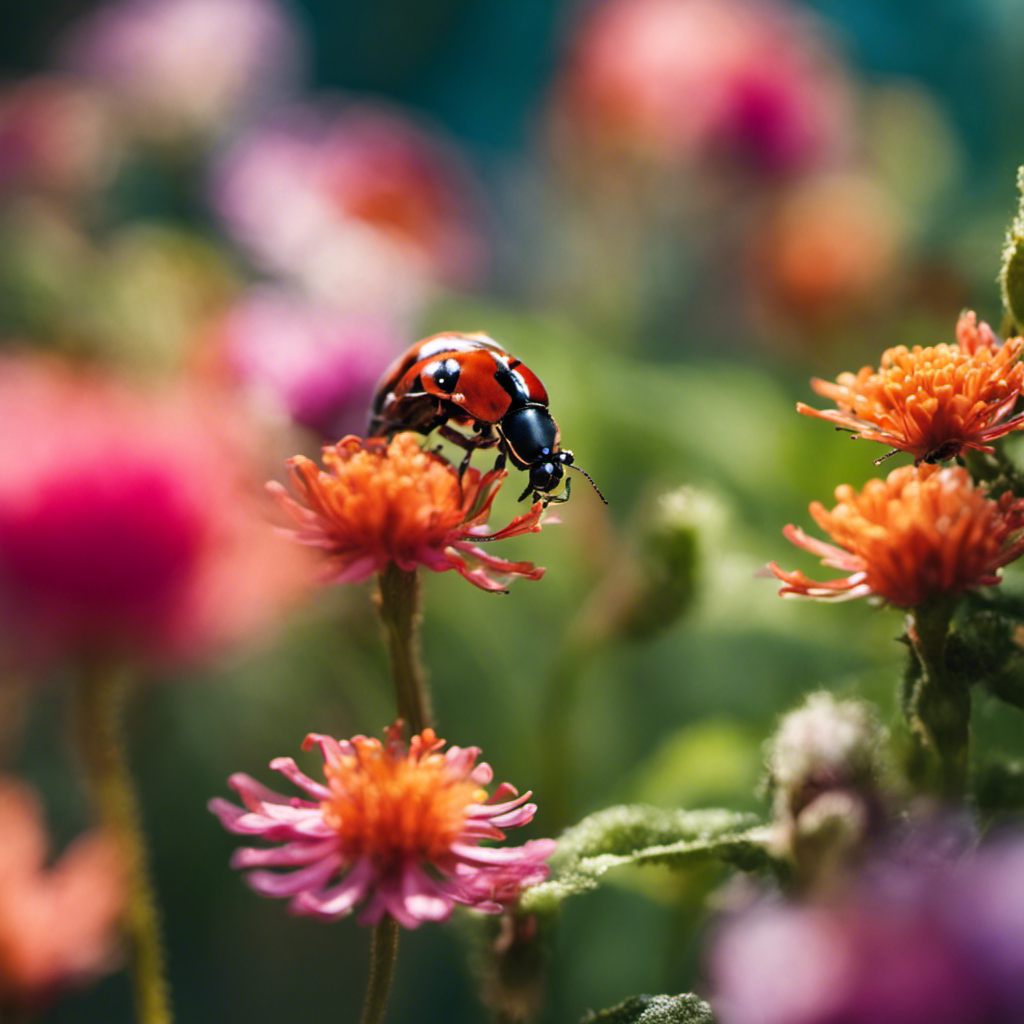
How to Control Pests Naturally in Your Garden
Looking for natural ways to control pests in your garden? One effective method is to attract beneficial insects that act as natural predators for garden pests. These insects can help keep pest populations in check without resorting to harmful chemical pesticides.
Here are three biological control methods you can try:
-
Attract Beneficial Insects: Plant flowers that are known to attract beneficial insects like ladybugs, lacewings, and parasitic wasps. These insects feed on common garden pests such as aphids, caterpillars, and mites, helping to control their numbers naturally.
-
Provide a Habitat: Create a welcoming environment for beneficial insects by adding plants that offer shelter, such as tall grasses, shrubs, and small trees. By providing them with a habitat, you encourage these beneficial insects to stay in your garden and continue their pest control activities.
-
Use Targeted Treatments: Avoid using broad-spectrum pesticides, as they can harm beneficial insects along with the pests. Instead, opt for targeted treatments like insecticidal soaps or neem oil, which are less harmful to beneficial insects but still effective against garden pests.
Companion Planting for Pest Deterrents
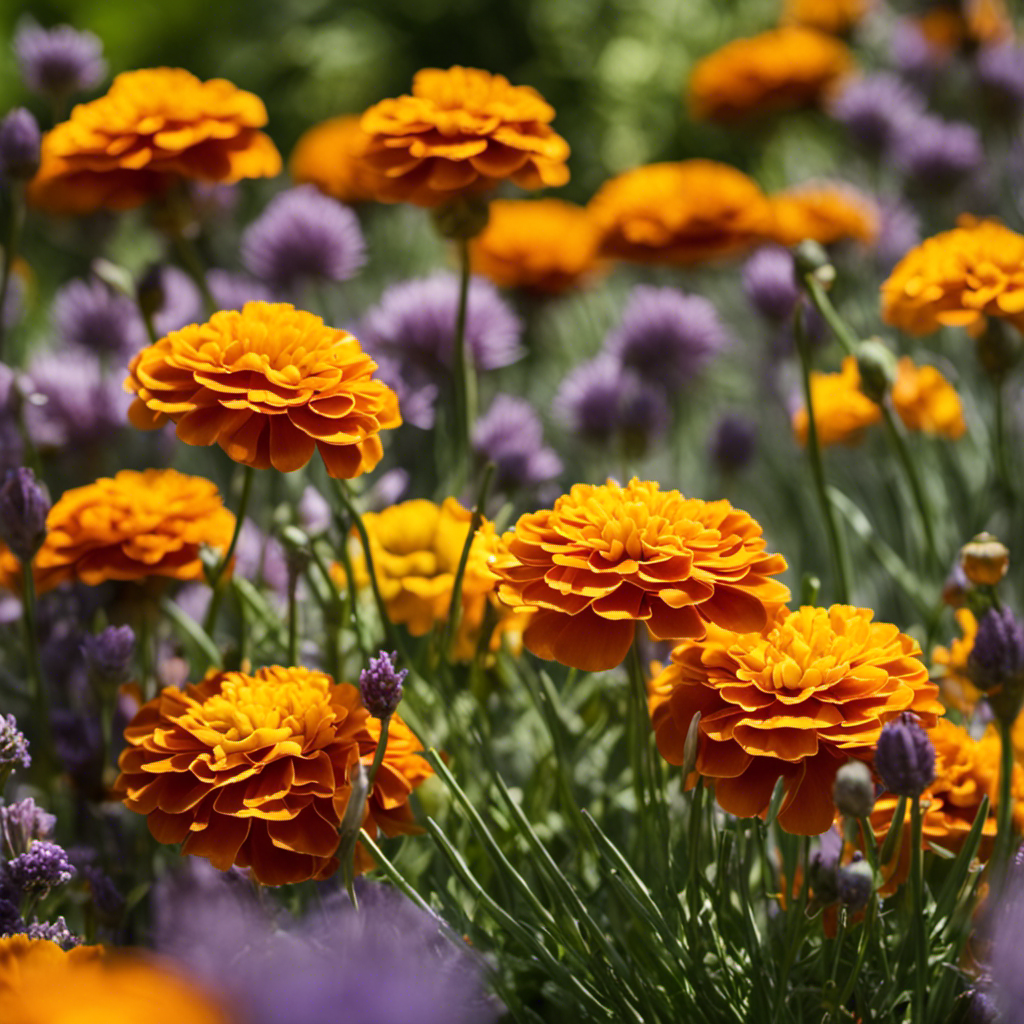
Companion planting is a natural and effective method for deterring pests in your garden. One of the advantages of companion planting is crop rotation, which disrupts the life cycles of pests and prevents them from establishing themselves.
Additionally, certain plants can attract beneficial insects that prey on garden pests. For instance, planting marigolds can attract ladybugs, which feed on aphids and other harmful insects. Similarly, herbs like dill, fennel, and cilantro can attract lacewings and hoverflies, which eat aphids and caterpillars.
Homemade Organic Pest Control Sprays
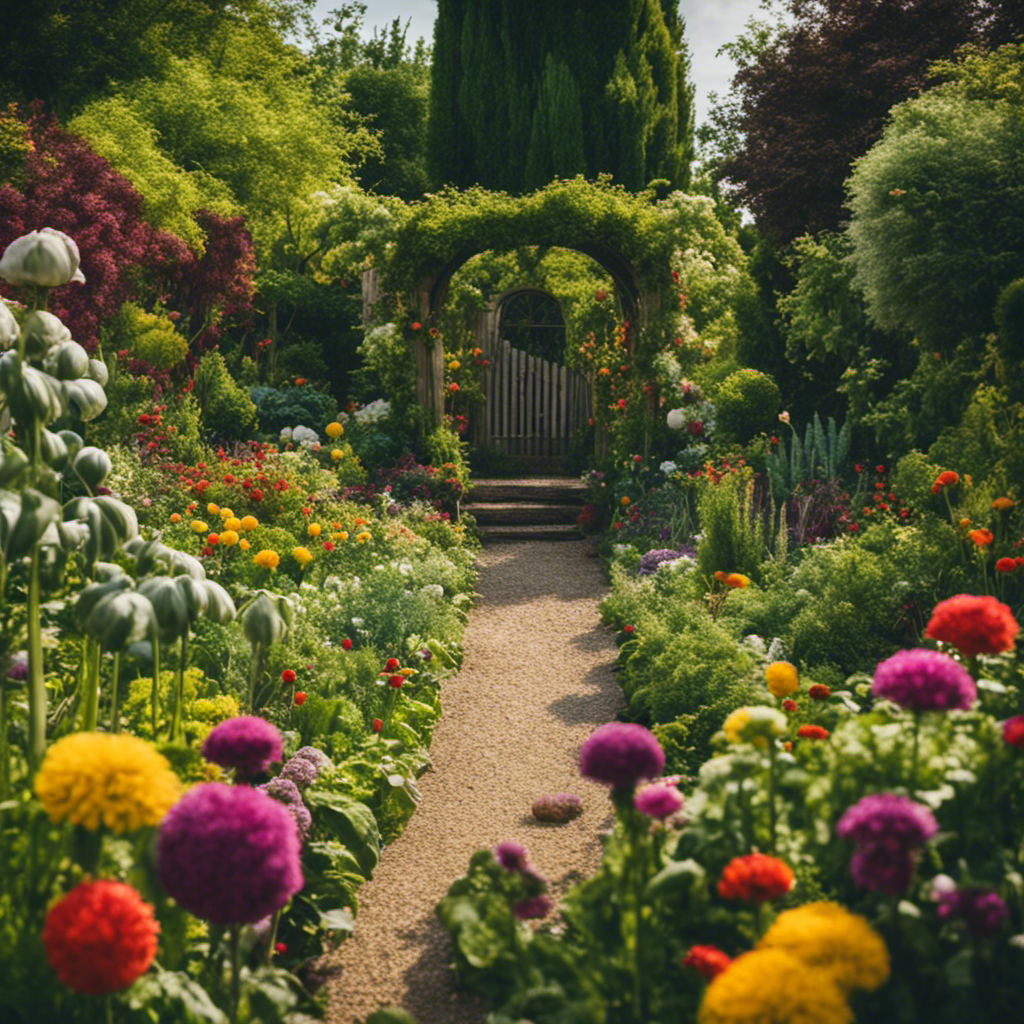
Maintaining a pest-free garden is essential, and one effective method is to use homemade organic pest control sprays. These sprays not only keep pests away but are also safe for your plants, the environment, and your family.
Here are three natural ingredients that you can use to create your own pest control sprays:
-
Neem oil: Derived from the seeds of the neem tree, this powerful oil acts as a natural insecticide. By mixing it with water and a mild detergent, you can create a spray that repels and kills pests like aphids, mites, and whiteflies.
-
Garlic and onion spray: Crushed garlic and onion are potent repellents for various pests, including insects and small animals. Blend the cloves or onions with water, strain the mixture, and spray it on your plants to deter pests and keep them away.
-
Essential oils: Certain essential oils, such as peppermint, lavender, and citrus oils, have strong scents that repel pests. Mix a few drops of the oil with water and spray it on your plants to deter insects and pests.
Organic Pest Prevention Techniques
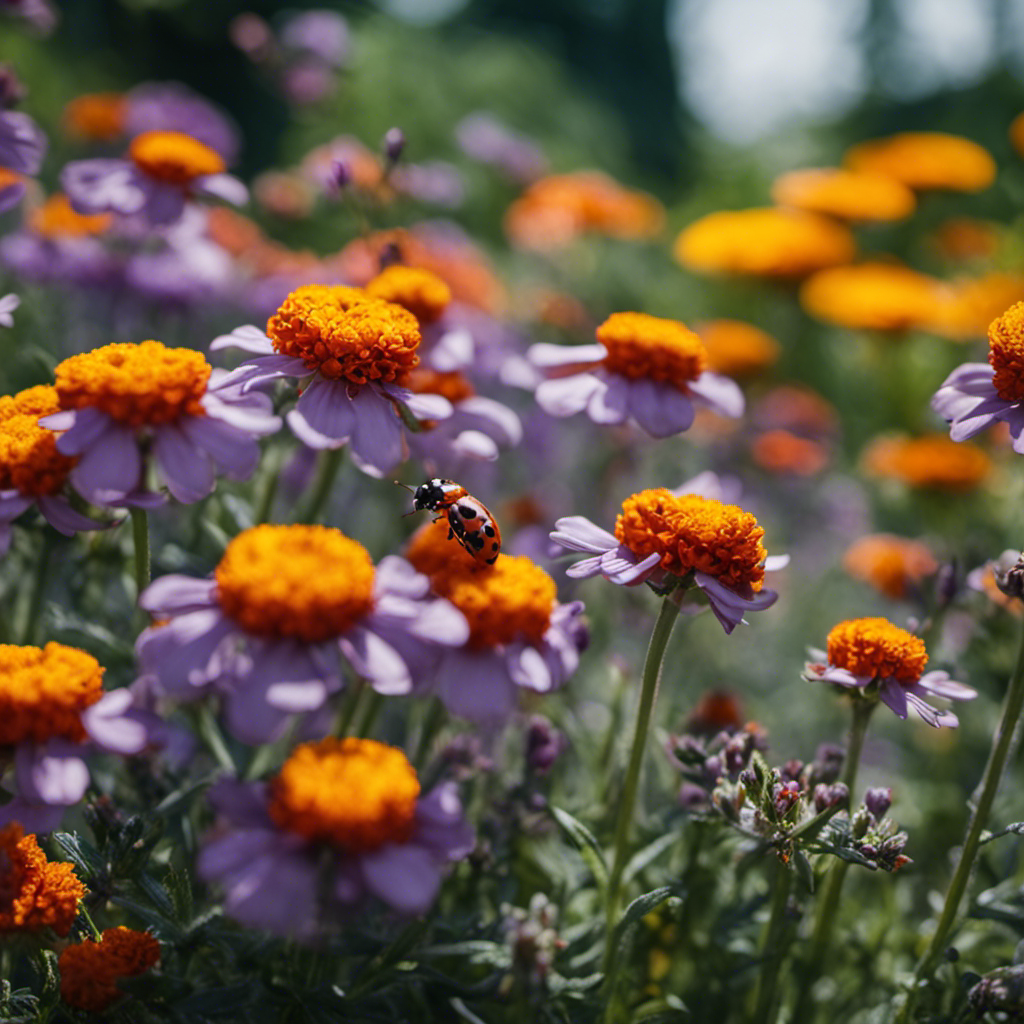
Preventing pests in your garden organically involves implementing various techniques that will keep your plants safe and thriving. One effective method is to choose plant varieties that are resistant to pests. These plants have natural defenses against common garden pests, such as certain types of tomatoes or marigolds. By selecting these varieties, you can reduce the risk of pest infestations in your garden.
Another important technique is soil management for pest prevention. Maintaining healthy soil is crucial for a pest-free garden. Regularly amending your soil with organic matter and compost improves its fertility and drainage. Additionally, practicing crop rotation helps break the life cycle of pests and prevents planting the same crops in the same area year after year.
Conclusion
In your journey to create a garden free from pests, it’s important to remember that nature provides many solutions.
You can harness the power of natural predators like ladybugs and birds to control unwanted garden visitors.
Another effective method is to plant companion crops such as marigolds and basil, which naturally deter pests.
Additionally, homemade organic sprays made from garlic or neem oil can help keep critters away.
By utilizing these organic techniques, you can establish a thriving garden that’s free from pests, allowing you to appreciate the beauty of nature’s harmony.
